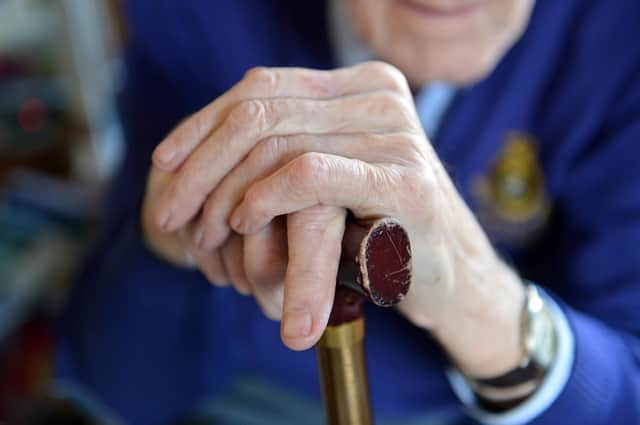Coronavirus: New emergency powers will allow councils to reduce support for SEN children and prioritise care for most vulnerable


The powers are tied up in the government’s Coronavirus Bill, set to be brought in later this week to help councils combat the spread of the Covid-19 virus.
Government says the measures ‘are temporary, proportionate to the threat we face, will only be used when strictly necessary and be in place for as long as required to respond to the situation’.
Advertisement
Hide AdAdvertisement
Hide AdThese powers are currently to remain in place for two years and are to “significantly enhance the ability of public bodies across the UK to provide an effective response” to the pandemic.
Councils, such as Sheffield City Council, Derbyshire County Council and Nottinghamshire County Council, which oversee adult social care – including those in care homes – will be able to prioritise care for people with the most pressing needs.
They will not have to meet people’s full assessed needs as long as this does not mean they fail to maintain their duty of care not to put people “at risk of serious neglect or harm”.
This is aimed at “allowing key workers to perform more tasks remotely and with less paperwork”.
Advertisement
Hide AdThe government says that during the pandemic “local authorities, which are responsible for social care, may not be able to do all the things they are usually required to do”.
Advertisement
Hide AdCouncils would also be able to re-hire recently retired social workers and could use emergency powers to hire new health and social care staff.
Employees could use Emergency Volunteer Leave to help with social services.
This would be unpaid but would be compensated later.
Legislation which the council often needs to use in order to detain and treat people with mental health conditions would also be relaxed.
Advertisement
Hide AdIf councils want to assist an adult with dementia for the person’s own benefit, they would only now need one doctor to sign off on the relevant paperwork, instead of two.
Authorities would also have their duty to carry out needs assessments relaxed in order to speed up the process of caring for the vulnerable.
Advertisement
Hide AdMeanwhile, schools and childcare providers can be ordered to remain open but would be able to alter the ratio of teachers to pupils.
This would mean that teaching staff would be able to oversee more pupils than is usually advised.
Advertisement
Hide AdSchools would also be able to adapt their school meal standards – likely to mean less choice, within reason.
They would also be able to relax the provision for pupils with special educational needs – their needs may not be met in full.
This is likely to see an end to one-to-one care for any pupils legally entitled to it for help with their education – purely for staffing reasons.
Advertisement
Hide AdCouncils would be given powers to take control of parts of the local “death management industry” if it is becoming overwhelmed.
Advertisement
Hide AdThis could see councils direct crematoriums to stay open for longer and process more bodies.
Councils could direct crematoriums or funeral homes to use their vehicles to move bodies and direct other firms to help out.
If the crematoria or homes refuse to comply, they could be forced to do so by councils.